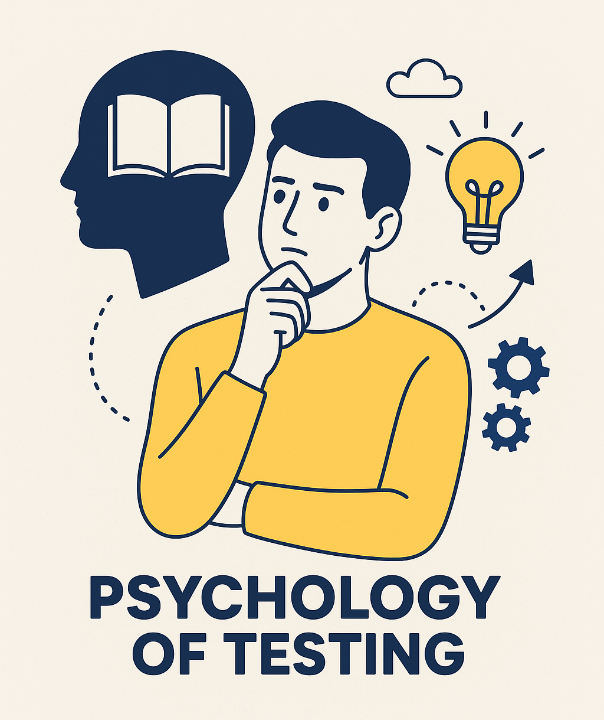 OTHERS
OTHERS Psychology of Testing

As a Key Account Manager working closely with QA teams in the IT industry, I have seen something beyond test cases, bug reports, and tools. The difference between an average tester and a great one is often not technical skill alone. It is their soft skills.
I have observed that the best QA professionals master not only their craft but also their psychology, mindset, and communication style. These testers build trust with developers, earn respect from clients, and elevate product quality faster.
𝗛𝗼𝘄 𝗮 𝗤𝗔 𝗦𝗵𝗼𝘂𝗹𝗱 𝗕𝘂𝗶𝗹𝗱 𝗧𝗵𝗲𝗶𝗿 𝗣𝘀𝘆𝗰𝗵𝗼𝗹𝗼𝗴𝘆 𝗼𝗳 𝗧𝗲𝘀𝘁𝗶𝗻𝗴
- 𝗔𝗱𝗼𝗽𝘁 𝗮 𝗤𝘂𝗮𝗹𝗶𝘁𝘆-𝗙𝗶𝗿𝘀𝘁 𝗠𝗶𝗻𝗱𝘀𝗲𝘁
See yourself as the guardian of user experience. Your mission is not to find faults but to ensure the product works as intended for the end user.
- 𝗦𝘁𝗮𝘆 𝗖𝘂𝗿𝗶𝗼𝘂𝘀 𝗮𝗻𝗱 𝗔𝗻𝗮𝗹𝘆𝘁𝗶𝗰𝗮𝗹
Ask “What if…?” at every stage. Think like an end user, a hacker, and a business owner all at once. Break down problems into patterns and root causes.
- 𝗠𝗮𝘀𝘁𝗲𝗿 𝗘𝗺𝗽𝗮𝘁𝗵𝘆 𝗶𝗻 𝗖𝗼𝗺𝗺𝘂𝗻𝗶𝗰𝗮𝘁𝗶𝗼𝗻
Developers invest time and energy into their code. Report defects with clarity and respect.
Example: Instead of saying “This feature is broken”, say “When I perform this action, the result differs from the expected outcome in the requirement.”
- 𝗖𝗼𝗻𝘁𝗿𝗼𝗹 𝗬𝗼𝘂𝗿 𝗧𝗼𝗻𝗲 𝗶𝗻 𝗘𝘃𝗲𝗿𝘆 𝗜𝗻𝘁𝗲𝗿𝗮𝗰𝘁𝗶𝗼𝗻
Your tone shapes how your message is received. A calm, factual approach helps get defects fixed faster and builds a positive reputation for QA.
𝗜𝗺𝗽𝗼𝗿𝘁𝗮𝗻𝗰𝗲 𝗼𝗳 𝗦𝗼𝗳𝘁 𝗦𝗸𝗶𝗹𝗹𝘀 𝗶𝗻 𝗤𝗔
In software testing, tools can be learned and processes can be trained. But it is soft skills with empathy, analytical thinking, adaptability, and respectful communication that make a tester truly valuable.
A QA with the right psychology and mindset is not just finding bugs; they are building stronger teams, happier clients, and better products.